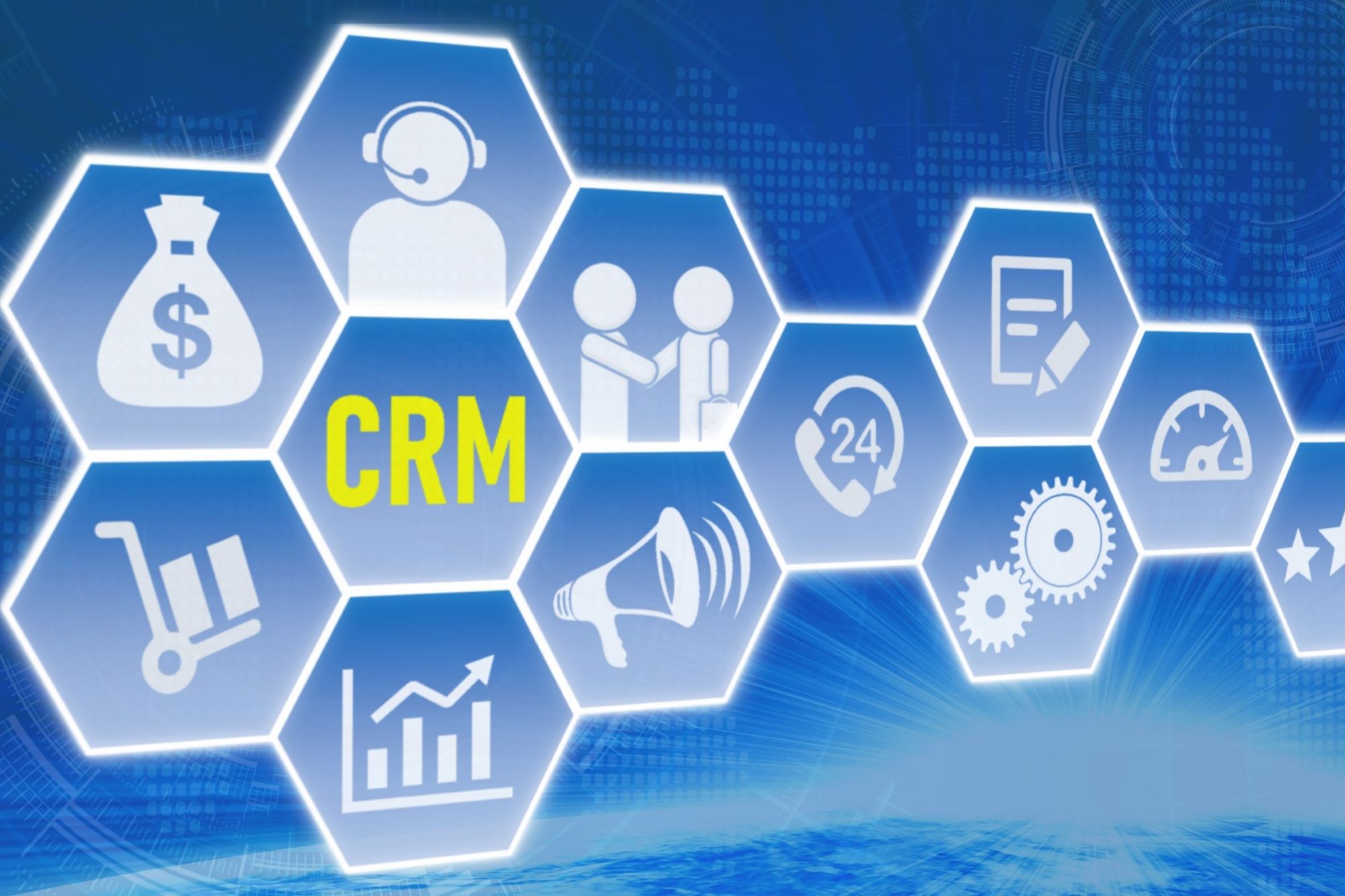Artificial intelligence (AI) has reshaped industries, and one of the key areas where AI’s impact is most felt is Customer Relationship Management (CRM). As businesses grow and customer expectations evolve, traditional CRM systems are becoming increasingly outdated. AI is stepping in as the game-changer, transforming the way companies manage customer relationships, provide personalized experiences, and streamline operations. In this article, we’ll dive deep into the role of AI in CRM, its benefits, challenges, and how it’s paving the way for the future.
What is AI in Customer Relationship Management
AI in Customer Relationship Management (CRM) refers to the use of advanced technologies such as machine learning, natural language processing, and automation to streamline and enhance customer interactions. By integrating AI, CRM systems become more intelligent and responsive, allowing businesses to manage customer data more efficiently. One of the primary roles AI plays is in data processing, where it analyzes large datasets, identifies patterns, and predicts customer behavior. This allows businesses to take a proactive approach to customer service, offering solutions and personalized experiences before customers even voice their needs.
The Evolution of CRM: From Traditional to AI-Powered Systems
Customer Relationship Management systems have come a long way from their traditional roots. Originally, CRM systems were designed primarily for organizing customer data, tracking sales interactions, and managing basic marketing campaigns. While these systems were efficient at storing data, they often fell short when it came to proactive customer engagement. Traditional CRM tools required manual input, and decision-making was largely dependent on human effort and intuition. As businesses grew and customer demands became more complex, these systems became less effective at keeping up with customer expectations.
The integration of AI has transformed CRM systems into more sophisticated tools. Today, AI-powered CRMs can automatically analyze customer data, predict trends, and even recommend the next best action for each customer. For instance, instead of simply storing customer purchase histories, modern CRM systems use AI to predict future buying behavior or recommend products based on previous purchases. This shift has moved CRM from being a passive data repository to a proactive, intelligent system capable of improving the customer journey at every touchpoint. In essence, AI is pushing CRM into the future by automating tasks, improving customer engagement, and driving more personalized interactions.
Benefits of AI in CRM
The integration of AI into CRM systems brings several significant benefits to businesses. By leveraging the power of AI, companies can improve their customer relationships, streamline operations, and make better data-driven decisions. Here are some of the key advantages of AI in CRM:
Personalization at Scale
- AI allows businesses to understand each customer’s unique preferences and behaviors by analyzing vast amounts of data.
- With these insights, companies can create highly personalized marketing campaigns, product recommendations, and tailored content.
- AI enables real-time customization across multiple touchpoints, ensuring every interaction feels personal and relevant.
Improved Customer Experience
- AI-powered chatbots and virtual assistants provide 24/7 customer support, answering queries instantly and efficiently.
- Predictive AI tools can anticipate customer needs and offer proactive solutions, enhancing the overall experience.
- By automating routine tasks, AI frees up human agents to focus on more complex issues, improving the quality of customer service.
Data-Driven Insights and Decision Making
- AI processes and analyzes vast amounts of customer data to generate actionable insights for businesses.
- These insights help companies make informed decisions regarding marketing strategies, sales forecasting, and customer engagement.
- AI-driven analytics can identify trends and patterns that were previously difficult to detect, leading to more effective business strategies.
Automation of Repetitive Tasks
- AI automates time-consuming tasks like data entry, lead sorting, and follow-up emails, allowing teams to focus on higher-level work.
- Automated workflows ensure tasks are completed faster and with fewer errors, increasing efficiency.
- This reduces operational costs and improves productivity within the sales and customer service departments.
By leveraging these benefits, AI-driven CRM systems not only optimize customer interactions but also drive more strategic, efficient business operations.
AI and Predictive Analytics in CRM
Predictive analytics is one of the most impactful features that AI brings to Customer Relationship Management (CRM). It allows businesses to forecast customer behavior, trends, and outcomes based on historical data. By analyzing past customer interactions, AI can identify patterns that indicate future actions, such as purchasing behavior or the likelihood of churn. This capability helps businesses make proactive decisions, whether it’s sending timely offers to prevent customer churn or allocating resources to the most promising leads. Predictive analytics transforms CRM from a reactive tool into a proactive, future-oriented system that drives better customer engagement.
The power of predictive analytics lies in its ability to provide businesses with foresight. AI algorithms analyze data at a level of depth and speed that humans alone cannot achieve. For example, predictive analytics can forecast the lifetime value of a customer, enabling companies to invest resources where they will yield the highest return. It can also optimize the timing of marketing campaigns, helping companies reach customers when they are most likely to engage. By anticipating customer needs, predictive analytics improves both the customer experience and business outcomes, turning CRM into a critical tool for strategy and growth.
Use Cases of Predictive Analytics in CRM Systems
Predictive analytics in CRM is applied in various aspects of customer management, enhancing both operational efficiency and customer satisfaction. A primary use case is in customer retention. By analyzing historical data, AI can predict which customers are likely to churn. These insights allow businesses to implement personalized retention strategies, such as special offers or targeted communication, to keep at-risk customers engaged. Another use case is lead scoring, where predictive analytics assigns values to leads based on their likelihood to convert, enabling sales teams to focus on the most promising opportunities.
In marketing, predictive analytics helps optimize campaign performance by suggesting the best times to send emails, adjust prices, or launch promotions. AI can also identify the products or services most likely to appeal to specific customer segments, making recommendations that align with customer preferences. These insights enable businesses to personalize their marketing efforts, resulting in higher engagement rates and improved ROI. Additionally, predictive analytics is often used in inventory management, ensuring that businesses can predict demand and adjust supply levels accordingly.
| Use Case | Description | Benefits |
| Churn Prediction | Identifying customers likely to leave the brand based on behavior | Reduces churn rates, allows proactive retention efforts |
| Lead Scoring | Assigning values to leads to prioritize high-potential customers | Focuses sales efforts on promising leads, improving conversion rates |
| Marketing Optimization | Suggesting optimal times for communication and offers | Increases engagement and ROI through personalized marketing campaigns |
| Inventory Management | Predicting demand to ensure adequate supply levels | Reduces stockouts and overstock, optimizing supply chain management |
AI-Powered Chatbots and Virtual Assistants
The rise of AI-powered chatbots has revolutionized the way businesses handle customer service, offering a more dynamic, scalable, and efficient solution. AI-driven chatbots are capable of managing a wide range of customer inquiries, from simple FAQs to more complex issues, all in real-time. These virtual assistants provide immediate responses, reducing the time customers spend waiting for a resolution. This instant availability increases customer satisfaction, as they no longer need to depend solely on human agents who might be unavailable outside regular business hours. AI chatbots also offer the advantage of learning over time; as they handle more interactions, they get better at understanding and addressing customer needs.
In addition to improving customer satisfaction, AI chatbots help reduce the workload on human agents. By automating routine and repetitive tasks, chatbots allow human support staff to focus on more complex or sensitive issues that require a personal touch. For instance, chatbots can handle basic inquiries, such as tracking orders, checking account balances, or answering frequently asked questions. This allows human agents to dedicate their time to solving issues that require empathy, creativity, or critical thinking, leading to a more efficient use of resources within the customer service department.
Impact on Customer Service and Support
AI chatbots have significantly improved the efficiency and quality of customer service. One of their main benefits is the ability to manage multiple conversations simultaneously. Unlike human agents, who can handle only a limited number of interactions at a time, AI chatbots can engage with an almost unlimited number of customers at once, ensuring that no inquiry goes unanswered. This ability to scale customer support operations without increasing headcount is especially valuable for large companies or those experiencing rapid growth.
Another critical impact of AI chatbots on customer service is the enhanced personalization and natural language understanding they bring to interactions. With advancements in natural language processing (NLP), AI chatbots are becoming more adept at understanding context and providing more accurate, human-like responses. This not only speeds up problem resolution but also makes the interaction feel more engaging and less robotic. By learning from past interactions, AI systems can personalize their responses and offer more tailored solutions based on individual customer histories and preferences. This level of personalized, responsive service helps businesses build stronger, long-lasting relationships with their customers.





